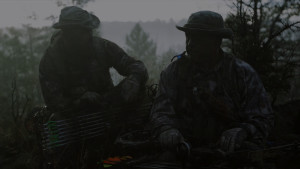I am doing my best to be forward thinking this year and prepare in ALL ways for the backcountry. Here’s a good article just to get you into the mindset. -Brian

- To determine which hunting tag you are capable of getting, decide which state you will hunt in and what species of animal you will hunt. Tags can take years or months to acquire, so plan accordingly.
- If available, get a small game tag if you plan on hunting and preparing your own meat for food while in the backcountry.
- Do your research, and choose your game unit based on draw rates, harvest success rates and trophy sizes.
- Look at the geography of the unit (such as where the water sources are and if there are any high-traffic areas for game), and decide which specific area you will hunt.
- Decide how many days you will hunt. This will determine what type of gear you carry. A long hunt typically requires a pack with about 3,900 cubic inches, whereas a pack with 2,200 cubic inches will get you through a 4-day hunt.
- Find a comfortable backpack that fits your body type, and be sure to have enough dry bags to keep your gear dry in the event of wet weather.
- Water is crucial. Plan to pack enough in, or bring a water filter if you have access to fresh water.
- Pack enough food for 2 to 3 meals per day. Freeze-dried food is a good, lightweight option.
- Pack a tent. A wall tent will probably have to be carried in by horse but allows you to pack in stoves and more food and have a set base camp. A bivvy or backcountry tent can be transported anywhere but must be carried in on your back.
- Bring a lightweight sleeping bag that can accommodate the nighttime temperatures in the area where you’ll be sleeping.
- Wear boots with good ankle support, and break them in before you go. You could be walking up to 15 miles or more per day.
- Wear camouflage clothing in the pattern that’s right for where you’ll be hunting, and bring layers if you’re going later in the season.
- Bring a battery pack if you’re going to be off the grid for several days. A portable solar panel can keep your battery pack charged for longer trips.
- Consider the self-defense tools you’ll need if you’re hunting in an area with potentially dangerous predators.
- Pack the proper knives to utilize in the event of a successful hunt. A knife with disposable blades will eliminate the need to sharpen dull blades.
- Have meat packs or bags handy to keep the meat dry after it’s clean and cut. On average, an animal typically has a 40% yield of meat, so plan according to what type of game you’ll be hunting.
- You may have to get several hundred pounds of meat out of the backcountry. Consider splitting that among several people, taking multiple trips, or plan to have enough room in your pack to carry it in one haul.
- Remember the basics: undergarments, socks, wipes, snacks, camping and fire supplies, sleeping supplies, eating utensils, a first aid kit, etc.
- If your trip requires a lot of hiking or climbing, remember to do some training prior to your trip. Elk hunting, especially, can require trekking up to 20 miles a day.
- Utilize an inReach satellite communication device.
- Prior to the hunt, pair you inReach device to its compatible app (Earthmate® app or Garmin Explore™ app) and become familiar with finding your location, creating a waypoint or navigating a route to your designated hunting areas.
- Drop a waypoint in the parking lot where your car will be parked. Also drop waypoints in areas that you’re interested in, such as mountain saddles that have high game traffic.
- Create emergency exit routes so you don’t have to spend energy trying to navigate in the event you need to get out of an area.
- During the hunt, use the inReach device for tracking, and send your MapShare™ page to friends and family so they can follow along.
- Use inReach for two-way messaging with friends and family back home.
- If you’re hunting in a group, use the inReach device to keep track of and communicate with each other, and send reference points to communicate where to meet.
- In an emergency, use inReach to trigger an SOS for yourself or a member of your hunting party.